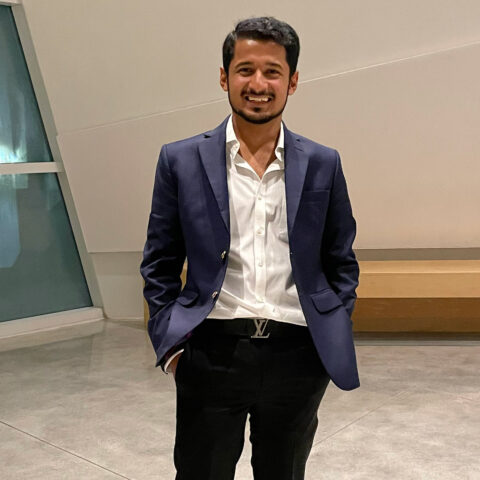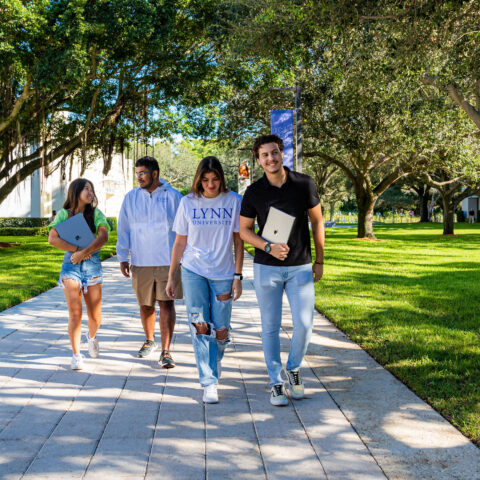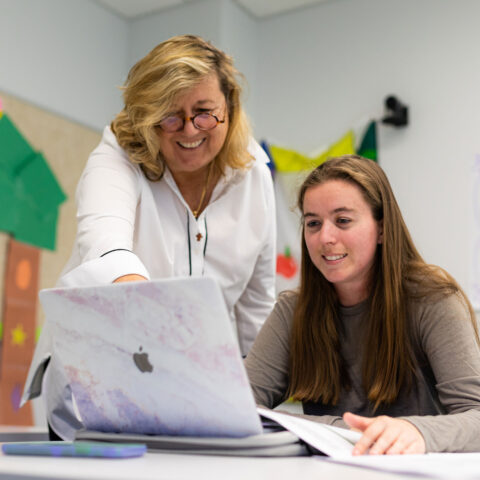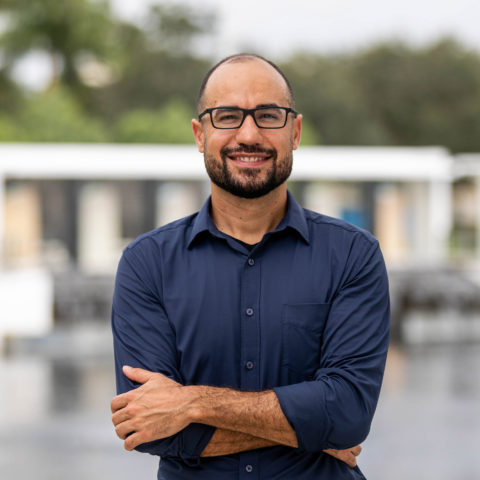For generations, technological breakthroughs have helped advance human evolution. Everything from the wheel to Wikipedia and Bluetooth-enabled cell phones to artificial hearts has made our lives easier and more efficient. Scientific advances are so ingrained in our society that technology now touches every aspect of our lives. Nearly three-quarters of American respondents to a Reviews.org survey reported they feel uneasy leaving their smartphones at home. As of 2021, there are more "internet of things" (IoT) devices—voice-activated lighting fixtures, smart doorbells and wearable technology—than there are non-IoT devices.
Education 2.0
As our world has become increasingly digitally–dependent, education has also evolved to meet workforce demands. The term STEM, an acronym for science, technology, engineering and mathematics, was created to popularize these academic disciplines. From aviation and environmental policy to cybersecurity and computer animation, Lynn University has offered STEM programs that perfectly align with job market needs. Pioneering these programs has consistently earned the university high rankings as one of the "Most Innovative" universities by U.S. News & World Report.

True to its reputation, Lynn is once again innovating. This time, by reinventing how academia defines STEM education. In 2021, Dr. Valeria Fabj, College of Communication program coordinator, realized she could apply STEM outcomes and objectives to Lynn's programs.
"When I started teaching full-time in 1989, I never would have thought my communications classes would involve STEM," said Fabj. "Now, I can't teach my social movements course without discussing social media or the impact of digital video on our interactions. Technology truly is woven into the fabric of our coursework."

After receiving leadership approval, Fabj worked with Morayma James, International Programs and Services assistant director, to review individual courses and identify those that could earn a place on the Department of Homeland Security (DHS) STEM Designated Degree Program List. Together with the communication and design faculty, Fabj then aligned each course outcome to DHS curriculum requirements and applied for STEM codes. To her surprise, numerous classes qualified.
"Many of our graduate classes—communication and media technologies, digital storytelling, even our history of communication media—incorporate fundamental STEM principles," she noted.
Her creative approach to communication and design, coupled with innovative application of DHS codes, have resulted in two graduate degrees earning STEM designation this year: the Master of Fine Arts in visual effects animation and all concentrations for the Master of Science in communication and media (digital media, media studies, and practice and strategic communications).
STEM degrees make Lynn a sought-after destination for international students
For 20 years, U.S. News & World Report has recognized the institution for its ability to recruit international students, with 16% of its student body coming from outside the United States. The university's STEM offerings contribute to its appeal among international students.

Designated STEM programs allow international students who have earned a STEM degree from an accredited school to extend their F-1 student visa by 24 months to complete a formal training related to their program of study in an approved field. Students from as far away as Egypt and India enroll at Lynn to learn valuable skills and practice their proficiency in the U.S. through a STEM Optional Practice Training (OPT) extension.
"Knowledge is boundaryless. We find our international students from developing countries enroll in American STEM programs so they can learn best practices and apply those skills back home," said Fabj. "Offering these programs truly makes a difference in our international community."
60 years later: Innovative approaches continue to evolve Lynn's curriculum

Since the university's founding in 1962, Lynn has built a foundation of fearless innovation and boundless curiosity. This mission has served the institution well over the years, resulting in cutting-edge programs such as its new STEM degrees.
As Lynn sets its sights on future programs and degree development, Fabj hopes to expand her department's STEM opportunities to undergraduate programs.
"Adding more STEM-designated programs to our catalog will further reinforce Lynn's forward-thinking approach to education and solidify us as an international resource for the sharing of knowledge," said Fabj.
If you or someone you know is interested in becoming a member of the Lynn student community, learn more about its admission requirements and schedule a tour.




